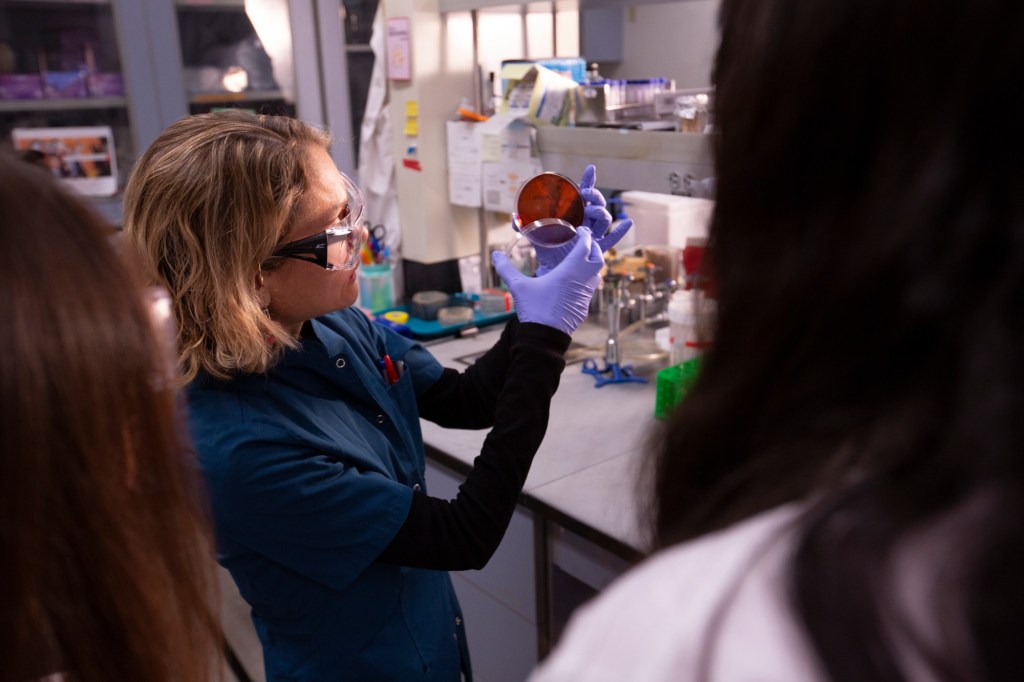By Nicole Gregory, contributing writer
Professor María Soledad Ramírez is passionate about her work in microbiology and its far-reaching potential to save the lives of people who are infected by dangerous, drug-resistant bacteria.
Antimicrobial resistance is an urgent global public health threat, according to the Centers for Disease Control, killing at least 1.27 million people worldwide and associated with nearly 5 million deaths in 2019.
“In microbiology, you have different organisms that can cause infection, such as viruses, parasites, fungus and bacteria. We work with bacteria,” Ramírez said, describing the work she does with her students as a professor in the Department of Biological Sciences at Cal State Fullerton.
“One of the main things that we are trying to do is to find novel or different approaches, or combination of approaches, to try to combat the multidrug-resistant pathogens — in this case, multidrug-resistant bacteria,” she said.
Ramírez has been sharing her passion and knowledge with undergraduate and graduate students since her arrival at Cal State Fullerton in 2014. In 2021, she was awarded the L. Donald Shields Excellence in Scholarship and Creativity Award for her work.
“We approach the crisis of the problem of the antimicrobial resistance from different sides,” Ramírez said. “One side is trying to find novel strategies to see if we can restore the susceptibility of multidrug-resistant bacteria — and what we saw is that we can, with the combination of novel molecules that we are testing. We observed that some of the compounds we are working with are killing the bacteria.
“And from the other side, we also try to understand why the bacteria are gaining resistance. That’s why we also do a lot of studies at the molecular and also transcriptomic (RNA) level, exposing the bacteria to different fluids. We also study at the genomic level the presence of novel genes, or mutations in genes, that can explain why the…
Read the full article here







